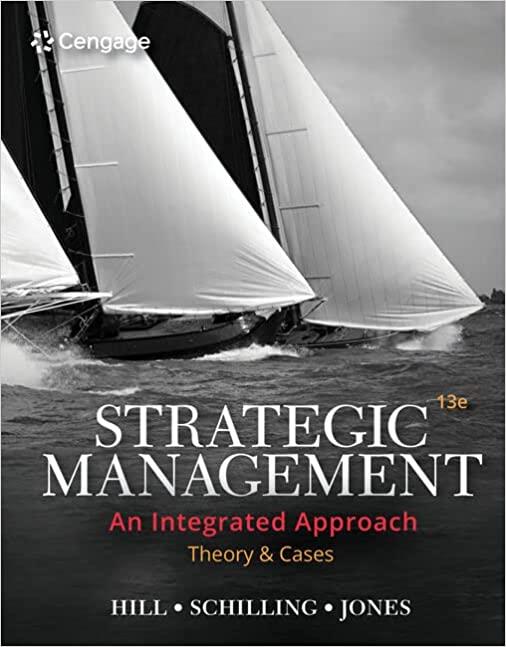Question
Sarah Adams manages Extended Travel Hotels of Toronto (ETHT), a 200-room facility that rents furnished suites to executives by the month. The primary market is
Sarah Adams manages Extended Travel Hotels of Toronto (ETHT), a 200-room facility that rents furnished suites to executives by the month. The primary market is for people relocating to Toronto and waiting for permanent housing. Ms. Adamss compensation contains a fixed component and a bonus based on the net cash flows from operations. She seeks to maximize her compensation. While Ms. Adams likes her job and has learned a lot, she expects to be working for a financial institution within five (5) years. ETHTss occupancy rate is currently running at 98 percent, and Ms. Adams is considering a $10 million expansion of the present building to add more rental units. She believes she has a very good understanding of the projected future cash flows. In year 1, such cash flows are projected be $2 million and are expected to decline $100,000 a year. The following table summarizes the expected cash flows (post expansion):
Table 1
| Year | Net Cash Flow (Millions) | Year | Net Cash Flow (Millions) |
| 0 | $(10.0) | 6 | 1.5 |
| 1 | 2.0 | 7 | 1.4 |
| 2 | 1.9 | 8 | 1.3 |
| 3 | 1.8 | 9 | 1.2 |
| 4 | 1.7 | 10 | 1.1 |
| 5 | 1.6 |
|
|
Based on the preceding data, Ms. Adams prepares a discounted cash flow analysis of her ETHT operation, which is contained in the following report:
Table 2
| Year | Net Cash Flow (Millions) | Discount Factor | Present Value of Cash Flow |
| 0 | $(10.0) | 1.000 | $(10.00) |
| 1 | 2.0 | 0.893 | 1.79 |
| 2 | 1.9 | 0.797 | 1.51 |
| 3 | 1.8 | 0.712 | 1.28 |
| 4 | 1.7 | 0.636 | 1.08 |
| 5 | 1.6 | 0.567 | 0.91 |
| 6 | 1.5 | 0.507 | 0.76 |
| 7 | 1.4 | 0.452 | 0.63 |
| 8 | 1.3 | 0.404 | 0.53 |
| 9 | 1.2 | 0.361 | 0.43 |
| 10 | 1.1 | 0.322 | 0.35 |
| Total (NPV) |
|
| $(0.73) |
The discount factors are based on a weighted-average cost of capital of 12 percent, which accurately reflects the hotels non-diversifiable risk. Ms. Adamss boss, Kathy Judson, manages the Hotel Division of Comfort Inc., which has 15 properties located around North America, including ETHT. Judson does not share the same detailed knowledge/understanding of the Toronto hotel market as does Ms. Adams. Her general knowledge is not as detailed or as accurate as Adamss.
- The Hotel Division of Comfort Inc. has a very old and simplistic accounting system that does not assign the depreciation of a hotels operation to individual managers annual operating (net cash flow) statement and, therefore, Ms. Adamss annual net cash flow statement is based solely on the operating revenues less operating expenses (i.e. neither the $10.0 million investment cost of expansion nor the resulting depreciation on such expansion is charged to her operating cash flow statement). Based strictly on the facts provided so far, what decision do you expect Ms. Adams to make with respect to investing the $10.0 million to expand? Explain why?
- Ms. Adams prepares the following report for Ms. Judson to justify the expansion project:
Table 3
| Year | Net Cash Flow (Millions) | Discount Factor | Present Value of Cash Flow |
| 0 | $(10.0) | 1.000 | $(10.00) |
| 1 | 2.0 | 0.893 | 1.79 |
| 2 | 1.9 | 0.797 | 1.51 |
| 3 | 1.9 | 0.712 | 1.35 |
| 4 | 1.8 | 0.636 | 1.14 |
| 5 | 1.8 | 0.567 | 1.02 |
| 6 | 1.8 | 0.507 | 0.91 |
| 7 | 1.8 | 0.452 | 0.81 |
| 8 | 1.8 | 0.404 | 0.73 |
| 9 | 1.7 | 0.361 | 0.61 |
| 10 | 1.7 | 0.322 | 0.55 |
| Net present value | $ 0.42 | ||
Ms. Judson realizes that Ms. Adamss projected cash flows are most likely optimistic, but she does not know how optimistic or even whether or not the expansion project results in a positive net present value. She decides to change Ms. Adamss performance measure used in computing her bonus. Ms. Adamss compensation will now be based on residual income and, therefore, Ms. Judson also changes the accounting system to track asset expansion / capital investments and depreciation on such capital investments. Ms. Adamss resulting profits from operations will now be charged for straight-line depreciation of the expansion/capital investment using a 10-year life (assume a zero salvage value). Calculate Adamss expected residual income from the expansion for each of the next 10 years using Table 2s net operating cash flows.
- Based on your calculations in Req. 2, will Adams propose the expansion project? Explain why?
- Instead of using residual income as Ms. Adamss performance measure in Req. 2, if Ms. Judson decides to use net cash flows from operations less straight-line depreciation. Will Ms. Adams seek to undertake the expansion? Explain why?
- If your conclusions in Req.s 3 and 4 are different, what are the principal reason(s) for the different conclusions?
Step by Step Solution
There are 3 Steps involved in it
Step: 1

Get Instant Access to Expert-Tailored Solutions
See step-by-step solutions with expert insights and AI powered tools for academic success
Step: 2

Step: 3

Ace Your Homework with AI
Get the answers you need in no time with our AI-driven, step-by-step assistance
Get Started


